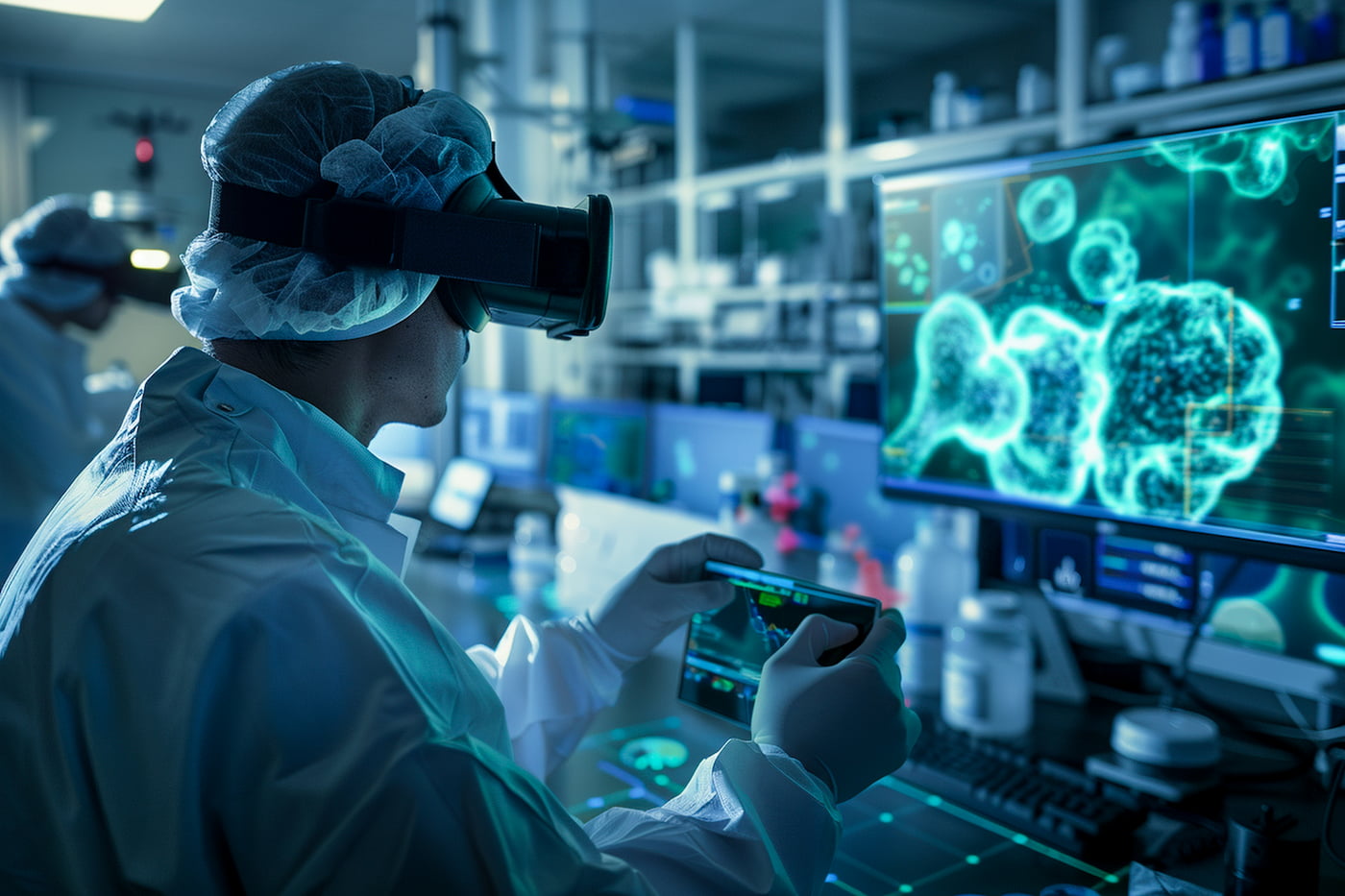Introduction
The pharmaceutical industry is undergoing a digital revolution, with technology playing a central role in enhancing the efficiency, accessibility, and effectiveness of both drug development and distribution. From artificial intelligence (AI) to blockchain and advanced data analytics, new technologies are reshaping every aspect of the pharmaceutical sector. In this article, we’ll examine the key technological advancements transforming the industry and their potential benefits.
Artificial Intelligence in Drug Discovery
One of the most exciting developments in pharmaceutical technology is the application of artificial intelligence (AI) in drug discovery. AI algorithms are helping researchers analyze vast amounts of data, predict molecular behavior, and identify promising compounds more quickly and accurately than ever before. By automating repetitive tasks, AI accelerates the drug development process, reduces costs, and increases the likelihood of finding effective treatments. As AI continues to evolve, it will play a crucial role in the future of personalized medicine and precision healthcare.
Blockchain for Drug Traceability
Blockchain technology is another innovation that is beginning to make waves in the pharmaceutical industry. Blockchain’s decentralized, immutable nature makes it ideal for ensuring the integrity and traceability of pharmaceutical products throughout the supply chain. This technology helps prevent counterfeiting, improves transparency, and ensures the authenticity of medications, providing both patients and distributors with increased confidence in the products they receive. As the pharmaceutical industry faces growing concerns about counterfeit drugs, blockchain is proving to be an invaluable tool in safeguarding public health.
Big Data and Predictive Analytics
The ability to gather and analyze vast amounts of data is revolutionizing pharmaceutical operations. Big data and predictive analytics enable companies to identify trends, predict patient outcomes, and optimize production processes. With the integration of real-time data from clinical trials, patient records, and supply chain management, pharmaceutical companies can make more informed decisions, streamline their operations, and improve patient care. Predictive analytics also plays a key role in anticipating disease outbreaks and ensuring that the right medicines are available at the right time.
Telemedicine and Remote Healthcare
Telemedicine has gained significant traction in recent years, and the COVID-19 pandemic further accelerated its growth. Telemedicine enables healthcare providers to diagnose and treat patients remotely, reducing the need for in-person visits. This is particularly important for individuals in rural or underserved areas where access to healthcare is limited. Pharmaceutical companies are increasingly developing digital platforms to support telemedicine, providing real-time consultations, medication prescriptions, and ongoing monitoring. As telemedicine becomes more widespread, it will improve access to healthcare while reducing strain on traditional healthcare systems.
Wearable Technology and Patient Monitoring
Wearable devices are increasingly being used to monitor patients’ health in real-time. These devices track everything from heart rate and blood pressure to blood sugar levels, allowing healthcare providers to monitor patients remotely. Pharmaceutical companies are leveraging wearable technology to gather critical data on how patients are responding to treatments and adjust prescriptions accordingly. This technology also allows for earlier intervention in the case of adverse effects, improving patient outcomes and reducing healthcare costs. The integration of wearable devices with digital health platforms will continue to evolve, enhancing personalized treatment regimens.
Robotics in Manufacturing
The use of robotics in pharmaceutical manufacturing is growing as companies seek to increase production efficiency and reduce human error. Robots are now being used for tasks such as assembly, packaging, and quality control. By automating these processes, pharmaceutical manufacturers can increase output, reduce operational costs, and improve product consistency. Robots also enhance safety by performing tasks in sterile environments, minimizing the risk of contamination. As robotics technology advances, its integration into pharmaceutical manufacturing will continue to streamline production while maintaining high-quality standards.
The Future of Pharmaceutical Technology
The role of technology in the pharmaceutical industry is only set to grow in the coming years. As innovation continues, new technologies will revolutionize how drugs are discovered, manufactured, and delivered to patients. Advances in AI, blockchain, data analytics, and telemedicine will create more efficient and personalized healthcare solutions. The pharmaceutical industry’s ability to adapt to and integrate these technological advancements will be key in shaping the future of global healthcare.
Pharma Nevis and Technological Innovation
At Pharma Nevis, we are committed to embracing new technologies that drive the future of healthcare. We continuously explore innovative solutions to enhance the development, transparency, and distribution of pharmaceutical products. By incorporating cutting-edge technologies into our operations, we aim to improve patient outcomes, ensure product safety, and stay at the forefront of the industry’s digital transformation.
Conclusion
Technology is reshaping the pharmaceutical industry in profound ways, from AI-driven drug discovery to the use of wearable devices and blockchain for traceability. These advancements are improving the efficiency of drug development, enhancing patient care, and ensuring the safety and authenticity of pharmaceutical products. As the industry continues to evolve, technology will remain a cornerstone in providing more accessible, personalized, and effective healthcare solutions. At Pharma Nevis, we are proud to be part of this technological transformation, working toward a healthier future for all.


